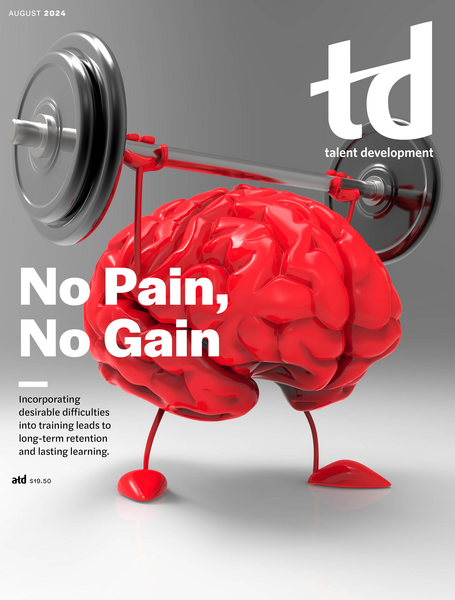TD Magazine Article
Make the Most of Feedback Conversations
All managers can learn to have better discussions with their direct reports.
Thu Aug 01 2024
Feedback: The thought of it can cause anxiety for providers and recipients alike. But the truth is, everyone needs feedback. It's an important part of our growth process.
In "Feedback for Better Performance," Colin May offers guidance on how individuals, especially new managers, can feel less angst and do a better job at providing feedback. When approaching such a conversation, managers can reflect on these questions:
Have I built trust with the other person?
Am I calm and objective?
Do I have sufficient time to discuss the issue?
Additionally, before broaching the topic, managers should understand what kind of feedback they want to provide.
Task-oriented feedback relates to the person's performance.
Motivational feedback concerns attitude.
Skills-related feedback reviews the "general attributes of successful employees."
Future-oriented feedback is a discussion about career development and aspirations.
Managers may want to use a feedback framework, such as SBI—situation, behavior, impact—the Center for Creative Leadership's model; STAR—situation, task, action, and result—developed by DDI; or SOAR—situation, observations, association and assessment, and reinforce and recommend—created by the US Army.
While each has its nuances, the frameworks all center on the manager describing the situation or event, the individual's issue or action, and the behavior's result or impact.
These tips were adapted from the August 2024 issue of TD at Work. Learn more at td.org/TDatWork.
You've Reached ATD Member-only Content
Become an ATD member to continue
Already a member?Sign In

